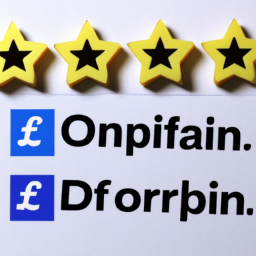5 Proven Tips for Improving Your Websites Domain Rating
Domain Rating
Domain Rating
Domain rating is an important measure to understand a website's authority and trustworthiness. This rating is used by companies and individuals alike to determine whether a particular website is worth investing in or not. In this article, we will explore the features, benefits, pros and cons, case studies, FAQs, mistakes people make, and best practices of domain rating.
Features
A domain rating is assigned to websites when they are created. It is a score ranging from 0 to 100 that reflects the domain's trustworthiness and authority. Domain ratings are calculated using an algorithm which takes into consideration various factors like a domain's age, popularity, content quality, and backlinks. The higher the domain rating, the more reliable and trustworthy the website is.
Benefits
The primary benefit of domain ratings is that they provide a measure of a website's trustworthiness and authority. Companies and individuals can use domain ratings to determine whether a website is trustworthy or not before investing in it. This helps protect companies and individuals from investing in potentially fraudulent or low-quality websites.
Pros & Cons
One of the main pros of domain ratings is that they provide a quick and easy method of assessing a website's trustworthiness and authority. In addition, domain ratings are continuously updated as new data is added about a website, providing an accurate measure of how trustworthy a website is at all times.
A con of domain ratings is that the algorithms used to calculate them can sometimes be inaccurate and outdated. It is also important to note that domain ratings do not take into account all factors when assessing a website's trustworthiness and authority.
Case Studies
Here are two case studies that illustrate how domain ratings can be used to assess a website's trustworthiness and authority:
Case 1: A company was looking to invest in a website but wanted to ensure that the website was trustworthy and authoritative. The company used the website's domain rating, which was a 90, to determine that the website was reliable before investing.
Case 2: A company was looking to invest in a website but was concerned about the website's trustworthiness and authority. The company used the website's domain rating, which was a 40, to determine that the website was not reliable and decided not to invest in it.
FAQs
What is domain rating?
Domain rating is a score ranging from 0 to 100 that reflects the domain's trustworthiness and authority. It is calculated using an algorithm which takes into consideration various factors like a domain's age, popularity, content quality, and backlinks.
How is a domain rating calculated?
A domain rating is calculated using an algorithm which takes into consideration various factors like a domain's age, popularity, content quality, and backlinks.
Why is domain rating important?
Domain rating is important because it provides a measure of a website's trustworthiness and authority. Companies and individuals can use domain ratings to determine whether a website is trustworthy or not before investing in it.
Mistakes People Make
One of the most common mistakes people make when assessing a website's domain rating is relying too heavily on the domain rating alone. It is important to keep in mind that domain ratings are calculated using algorithms which can be inaccurate and outdated, and that domain ratings do not take into account all factors when assessing a website's trustworthiness and authority.
Best Practices
The best practice for assessing a website's domain rating is to use the domain rating as just one factor among many when determining the website's trustworthiness and authority. It is important to take into account other factors like content quality, backlinks, and social media presence when assessing a website's trustworthiness and authority.
Conclusion
Domain rating can be a useful tool to assess a website's trustworthiness and authority. While domain ratings are calculated using algorithms which can be inaccurate and outdated, and do not take into account all factors when assessing a website's trustworthiness and authority, they can still be used as one factor among many when determining how reliable a website is. The best practice for assessing a website's domain rating is to take into account other factors like content quality, backlinks, and social media presence when determining the website's trustworthiness and authority.
